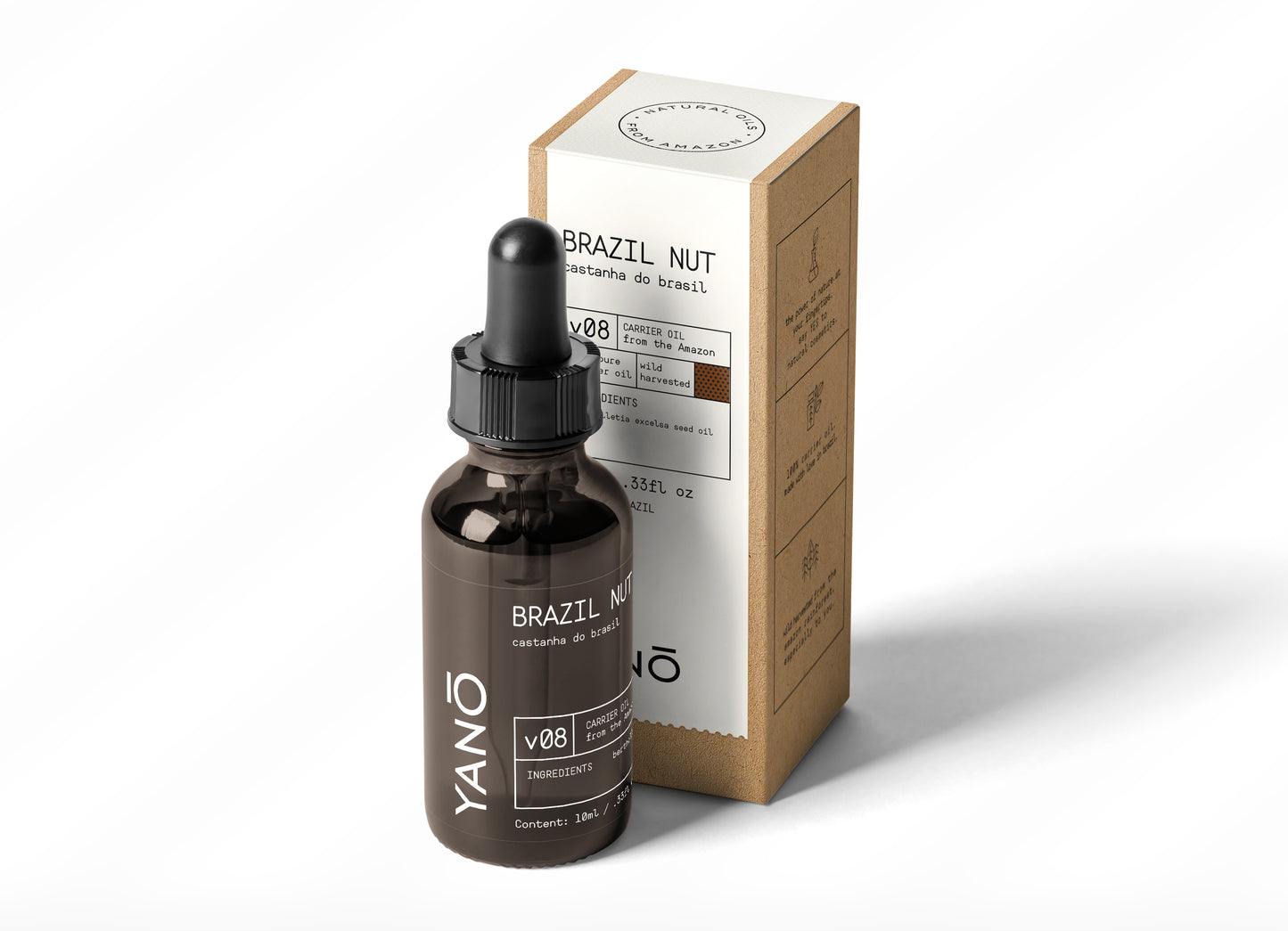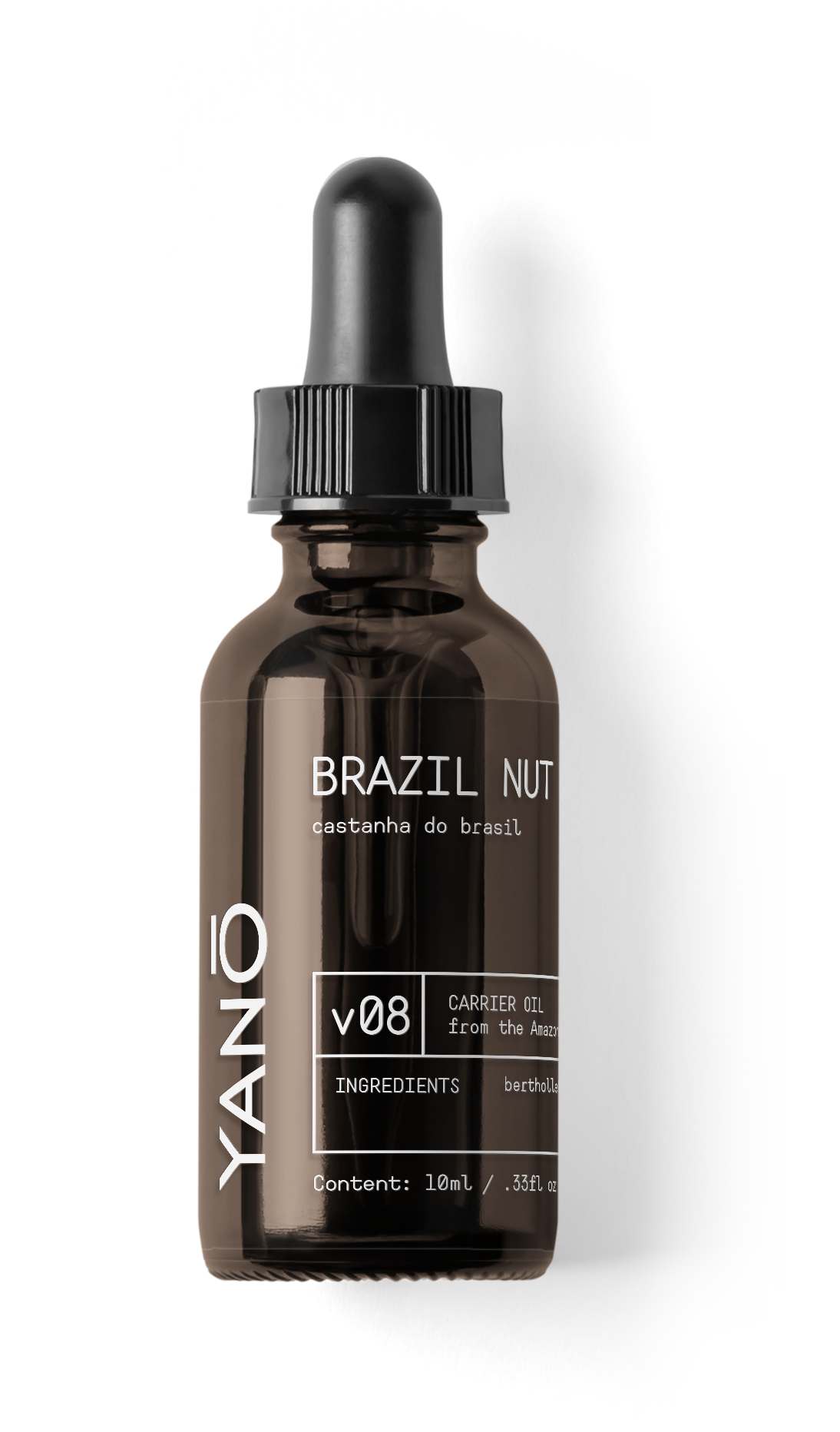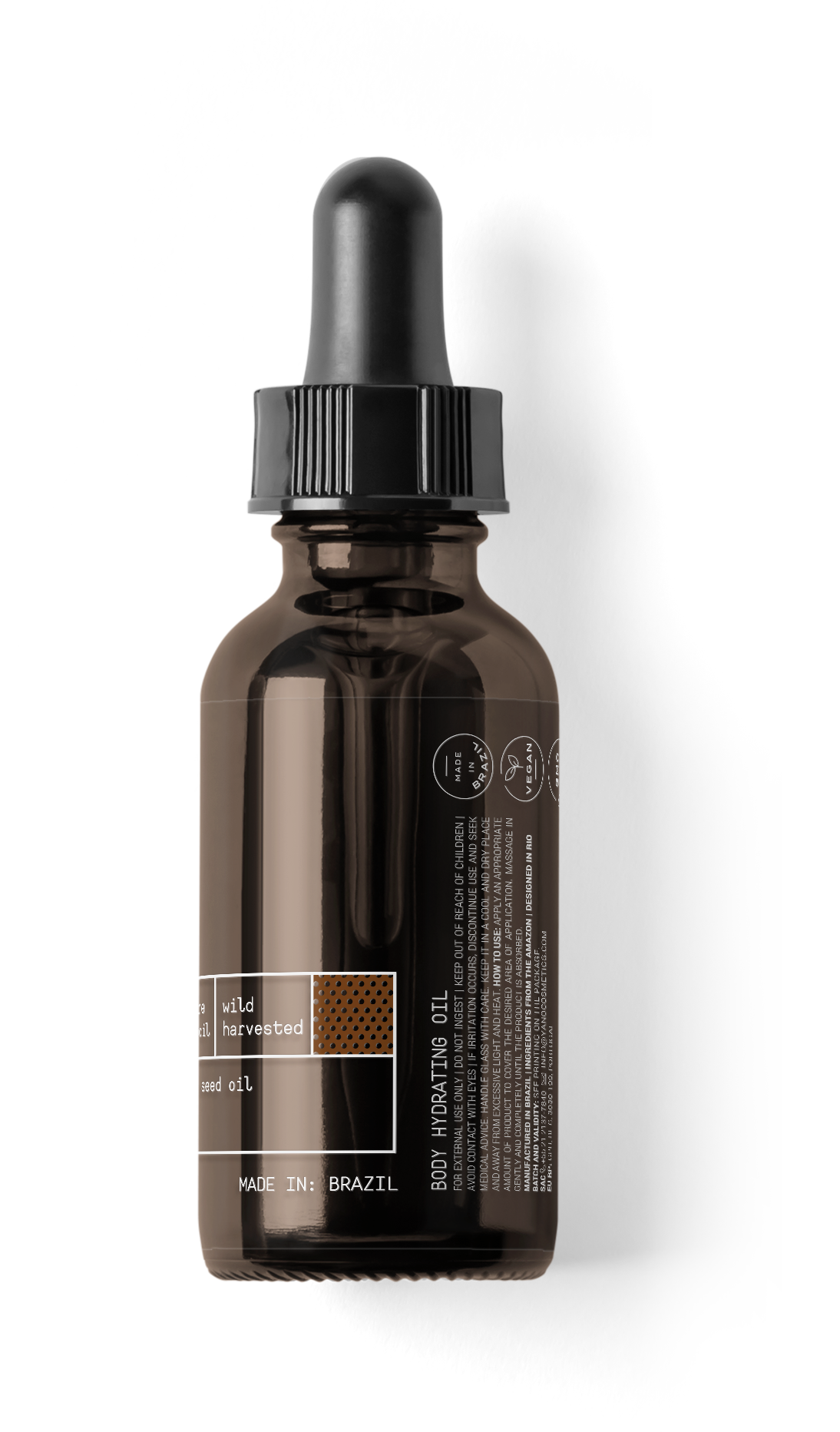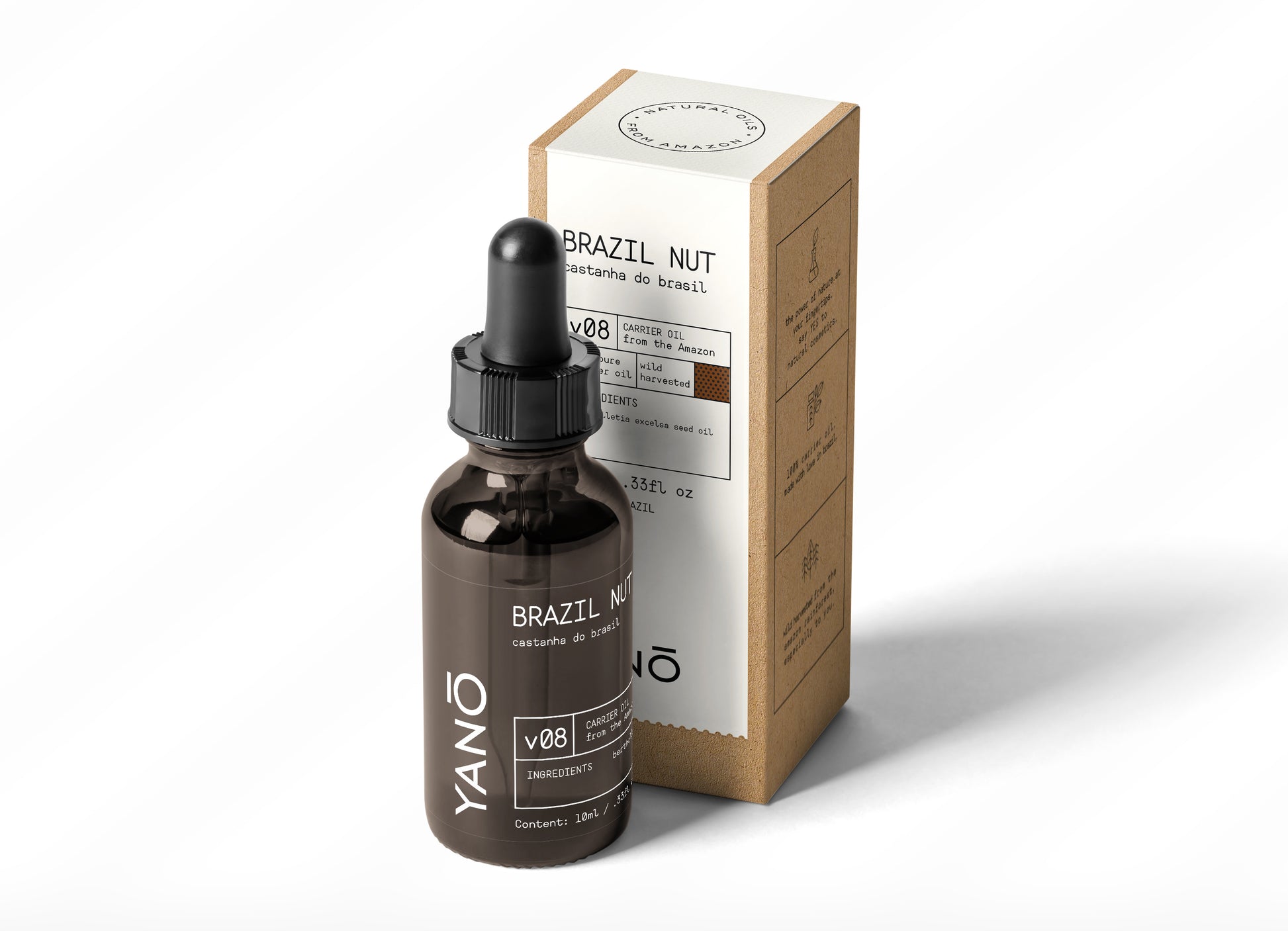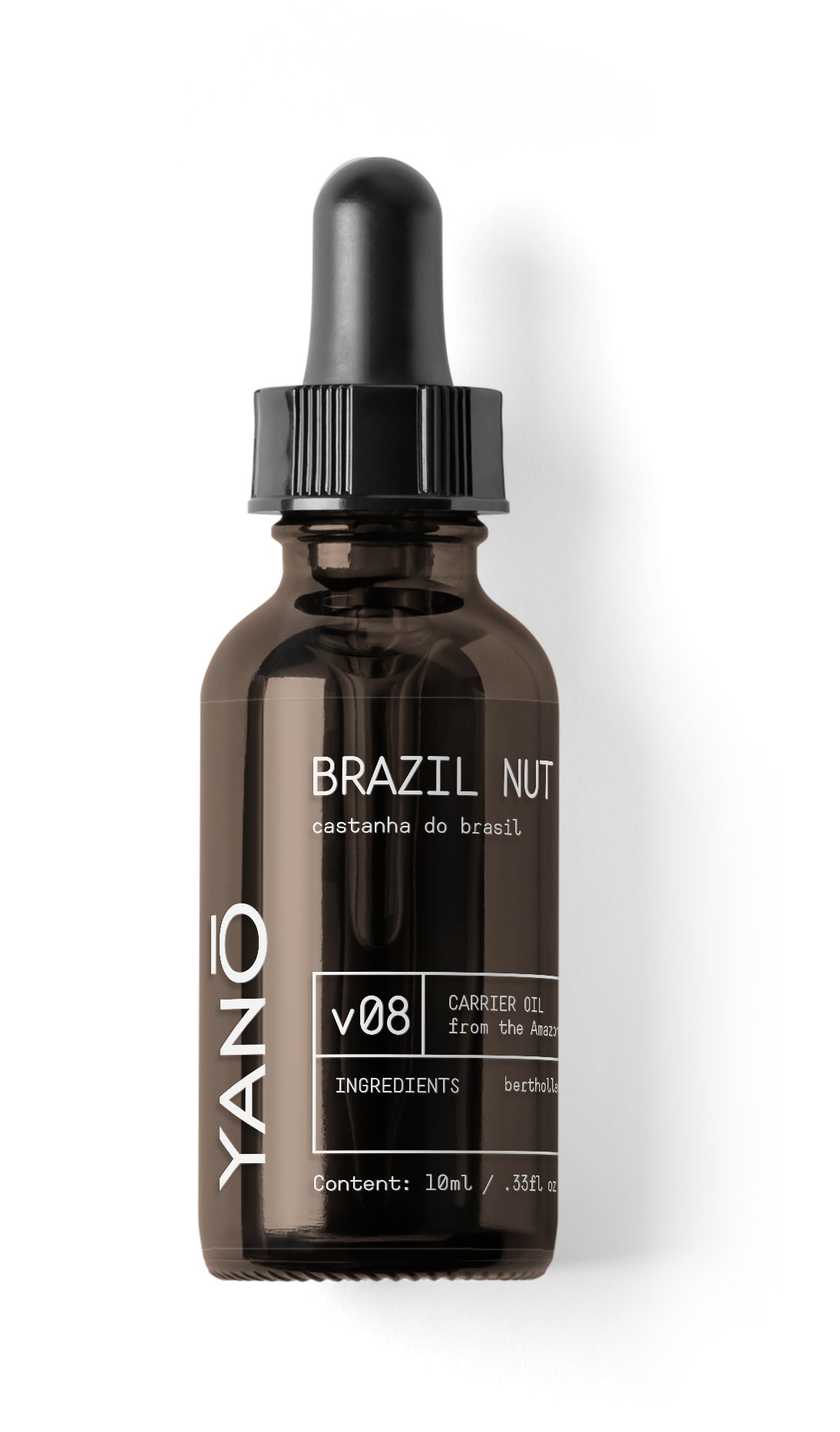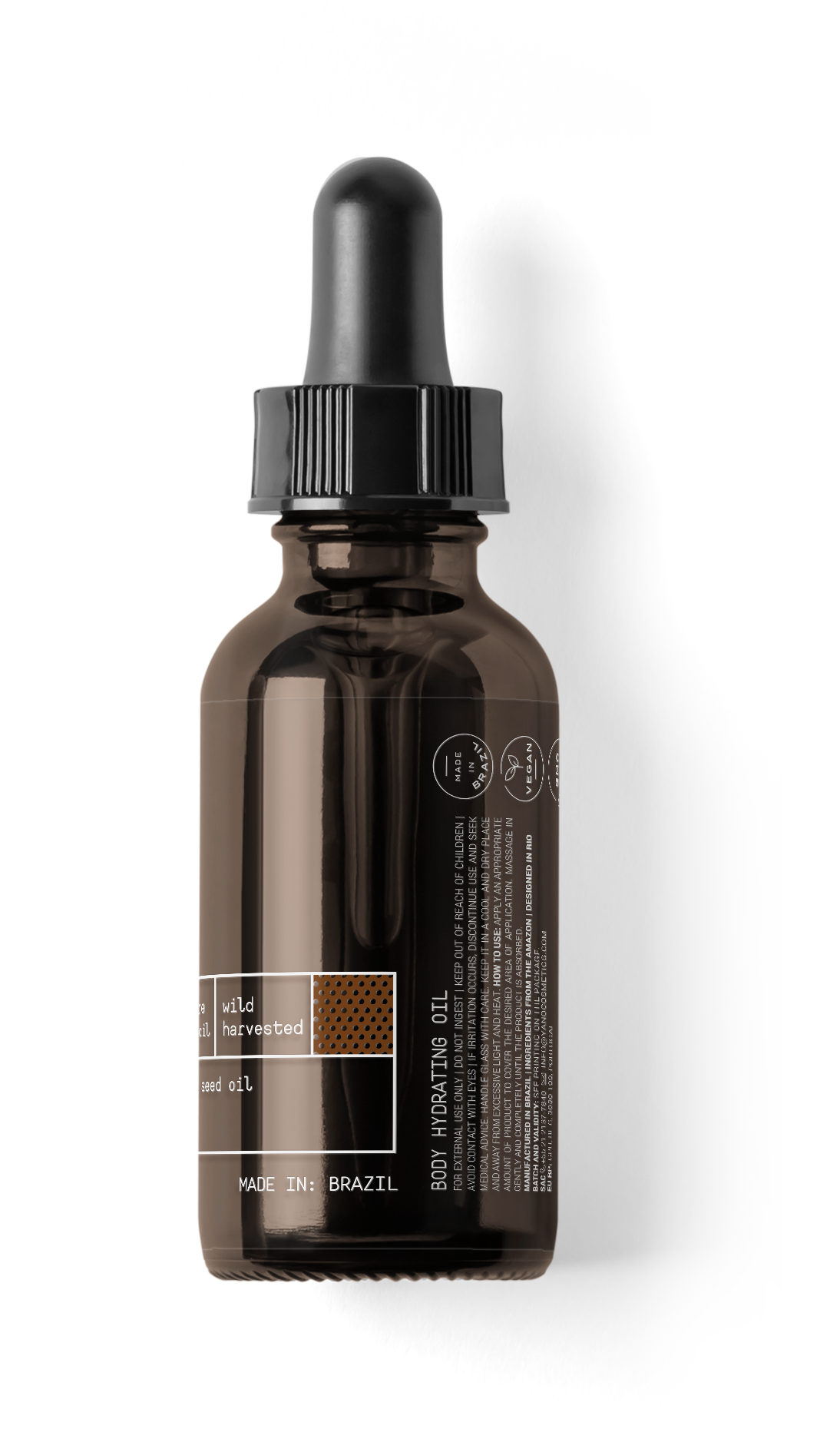Yano Cosmetics
Brazil Nut Carrier Oil
Brazil Nut Carrier Oil
Couldn't load pickup availability
BERTHOLLETIA EXCELSA SEED OIL
Benefit from its nourishing and healing properties. Its high content of vitamin E and antioxidants combine to create the smooth, soft, and healthy skin you desire.
Contains 75% unsaturated fatty acids primarily composed of palmitic, oleic, and linoleic acids, as well as phytosterol sitosterol and fat-soluble vitamins A and E. Helps to rejuvenate dry and lifeless hair, split ends, and allows the hair to remain soft and healthy; they also help to lubricate and hydrate the skin, providing antioxidant benefits, resulting in soft, smooth, and moisturized skin.
The Brazil Nut Carrier Oil, also known as Para Nut, from Yano Cosmetics is 100% pure, natural, and organic. Its composition is free from preservatives, dyes, artificial fragrances, parabens, silicones, and sulfates. The product is vegan, cruelty-free, and free from animal-derived ingredients.
Share
Handling Instructions
Handling Instructions
Due to their natural and 100% pure composition, our oils may partially or fully solidify in colder temperatures. If this occurs, gently warm the bottle in a water bath or leave it at room temperature until the oil returns to its liquid state.
Properties
Properties
- moisturizing
- restores skin softness
- nourishing
- sun protection
- restores the skin barrier
- antioxidants
- anti-inflammatory
- protects the skin
DataSheet
DataSheet
- Product: Brazil Nut Carrier Oil
- Packaging: Amber glass bottle with pipette and silicone dropper.
- Content: 10ml of carrier oil
- Origin: Brazil
- Scientific Name: Bertholletia excelsa seed oil
- Extraction Method: Cold pressing
- Composition: 100% pure Brazil Nut carrier oil.
Origin
Origin
Brazil
How To Use
How To Use
- Topical Use - 1ml
- Facial Massage - 5ml
- Scalp Massage - 5ml
- Body Massage - 5-30ml
- Baths - 1 tablespoon of carrier oil
Botanical Aspects
Botanical Aspects
The Brazil nut, derived from the Bertholletia excelsa tree, is an edible seed in the Amazon region. The tree can reach great heights and produces pods containing several nuts inside. With hard shells and edible kernels, the Brazil nut is valued for its distinctive flavor and nutritional benefits. At the same time, the tree plays a crucial role in preserving the biodiversity of the Amazon.
Combinations
Combinations
Lavender, ylang-ylang, bergamot, geranium, rosehip.
Do It Yourself
Do It Yourself
Medicinal clay, neutral base cream, massage oil, neutral base shampoo, and essential oils.
Fun Facts
Fun Facts
Archaeobotanical research reveals that the Brazil nut tree, a vital species for the Amazon, has been cultivated in the region by indigenous populations for over 11,000 years, indicating an ancestral interaction between Paleo-Indians and this essential natural resource.
From the early 19th century, there were efforts by the English, mainly through the Royal Botanic Gardens in London, to domesticate the Brazil nut tree. However, attempts to adapt Bertholletia excelsa (the scientific name of the Brazil nut tree) outside of its natural habitat were unsuccessful, unlike what happened with the rubber tree. Brazilian scientists and agronomists successfully adapted the Brazil nut tree to cultivation, contrasting with foreign attempts. During the 1970s, deforestation in the Amazon led Brazil to lose its position as the largest producer of Brazil nuts to Bolivia.
The Brazil nut emerged as a valuable economic alternative for the Amazon in the 1920s and 1930s, particularly after the decline of the rubber industry, surpassing the importance of rubber as the leading regional product.
With the end of the rubber boom, which profoundly affected the Amazonian economy, the commercialization of Brazil nuts played a crucial role in sustaining exports from the states of Pará and Amazonas. Pará stood out in Brazil nut production, especially in the area known as the Brazil nut polygon, located in the Marabá region in the southeast of the state. At that time, Brazil was the leading exporter of this product to Europe, where it had been appreciated since the 17th century.
Initially known as "Brazil nut" due to the state's role as the leading exporter, the terminology changed to "Brazil nut" in the 1950s at the initiative of the Brazilian government. Despite this, the denomination is contested by other producing countries in the Amazon region, who propose the term "Amazon nut" as a more inclusive and representative designation.
